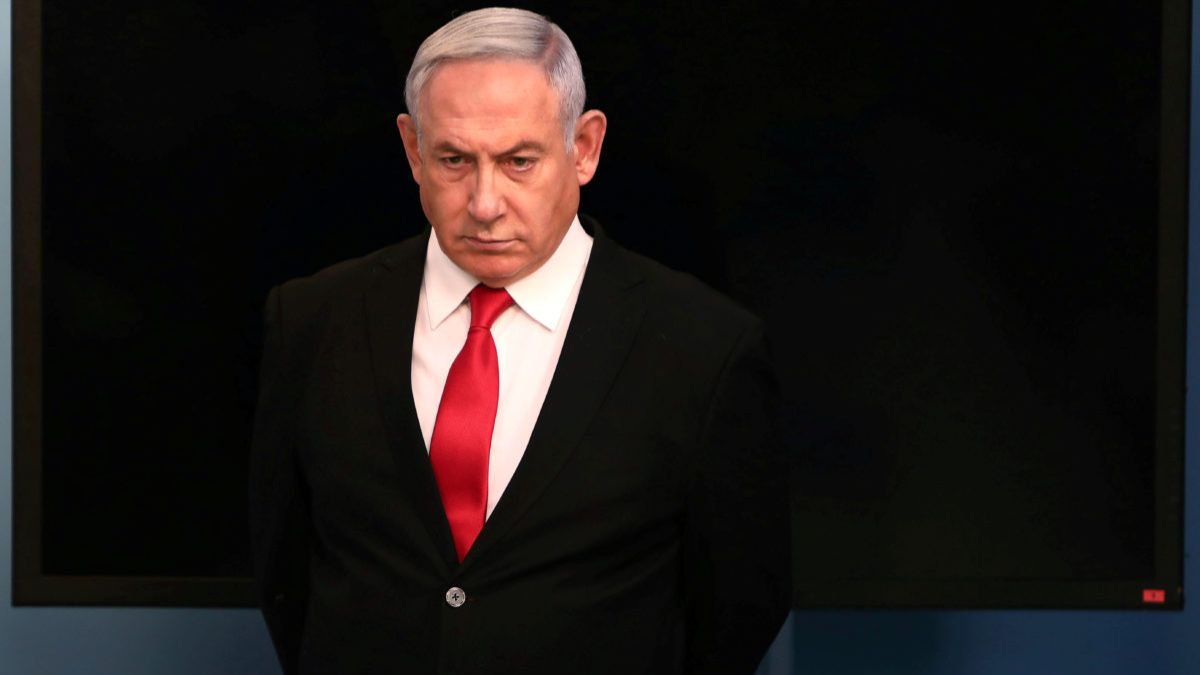- Israeli Prime Minister Benjamin Netanyahu is facing questions from various quarters amid the growing disconnect between his rhetoric and the realities on the ground, as military missteps in Gaza and settler unrest in the West Bank undermine both Israel’s international standing and internal cohesion.
Shifting war aims
Netanyahu has repeatedly declared “total victory” over Hamas as his goal, yet has failed to articulate a clear postwar vision for Gaza, stating only what it should not be — neither under Hamas nor the Palestinian Authority.
On Sunday, Netanyahu said the release of the remaining hostages in Gaza is the top goal of the war and that it was one of “many opportunities” that have opened up in the wake of the war with Iran.
“As you may be aware, many opportunities have arisen following this victory. First and foremost, to secure the release of the hostages. Naturally, we also need to address the Gaza situation and overcome Hamas, but I am confident that we will achieve both objectives.”
Critics, including former senior military officials, accuse Netanyahu of misleading the Israeli public with nationalistic slogans, rather than strategy.
Military blunders and humanitarian front
Israeli military operations in Gaza have resulted in high civilian casualties and widespread displacement, with over 95 per cent of Gazans forced from their homes and severe restrictions on humanitarian aid leading to famine conditions. The IDF has admitted to mistakes in Gaza.
Senior Israeli military officials admitted that Palestinian civilians were killed due to “inaccurate and uncalculated” artillery fire, following an exposé on deliberate IDF fire at unarmed Gazans near food aid centres.
At least 22 Palestinians were killed and 20 wounded on Monday, many at aid hubs in southern Gaza, according to witnesses and the Hamas-run health ministry.
International concern is mounting, with the German government stating it is “very concerned about the high death toll of Palestinian civilians” around food distribution points.
The IDF claims the shelling was intended to maintain order at chaotic aid sites but has since shifted tactics, implicitly acknowledging the previous approach was both ineffective and excessively lethal.
Israeli strikes on schools sheltering displaced people and a naval attack on Gaza City’s port have drawn further condemnation
The government’s decision to resume maximum military pressure after abandoning a hostage-ceasefire framework has drawn international criticism.
Israel already faces accusations of war crimes at the International Criminal Court.
West Bank escalation and settler unrest
In the West Bank, the IDF’s “Iron Wall” operation has led to mass displacement, destruction of refugee camps
Reports point to a surge in settler attacks, with some saying that a record number of settler attacks on Palestinians — over 220 injured in the first five months of 2025, the highest in years.
Nearly 720 Palestinians have been killed in West Bank since October 2023, when Hamas raided Israel and the IDF launched its military action
Settler violence has now turned inward, with recent attacks on IDF bases and personnel, exposing fractures within Israeli society and raising questions about the rule of law and military discipline.
Coalition pressures and far-right influence
Netanyahu’s far-right coalition partners, such as Finance Minister Bezalel Smotrich, openly advocate for the permanent occupation of Gaza and the re-establishment of Jewish settlements, positions that face fierce opposition both domestically and internationally.
Smotrich said, “The Gaza war cannot end in a cease-fire and hostage deal… if we give up precisely in front of those who are defeated, the message… will be sharp and clear: The way to bring Israel to its knees… is to kidnap Jews.”
The government’s ambiguous stance — oscillating between maximalist military goals and pressure from international partners — has left both the military and the public uncertain about Israel’s endgame in Gaza and the West Bank.
Mounting political and public pressure
As the war drags on, Netanyahu faces growing calls from opposition leaders and segments of the public to halt the fighting and clarify Israel’s objectives.
The ongoing violence and lack of a coherent strategy are fuelling doubts over Netanyahu’s leadership and the long-term security and moral direction of the state.
International ramifications
- Israel’s actions in Gaza and the West Bank have deepened its isolation, with allies urging restraint and accountability, while regional diplomatic initiatives remain stalled.
)